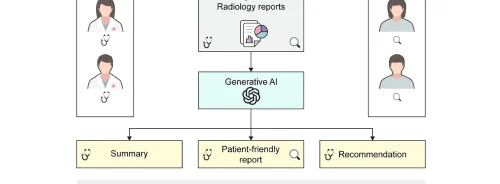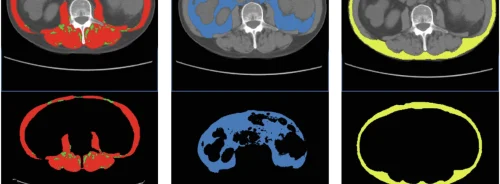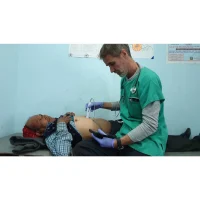Point-of-care ultrasound (POCUS) is widely used in hospitals across the country. However, as these systems are often shared between departments, and consultants may work at more than one hospital within a trust, there is a clear advantage to choosing instruments from a single supplier wherever possible. Jim McWilliams, Associate Director for Technical Services at Hinchingbrooke Hospital in Huntingdon, discusses some of the benefits of standardisation of medical equipment for clinicians and the North West Anglia NHS Foundation Trust.
The North West Anglia NHS Foundation Trust serves approximately 700,000 residents of Cambridgeshire, South Lincolnshire and the neighbouring counties. This recently created trust, formed in April 2017, includes three hospitals – Hinchingbrooke, Peterborough City and Stamford and Rutland – plus community clinics in Ely and Doddington. A majority of the trust’s inpatient cases and surgical procedures are dealt with at either Peterborough or Hinchingbrooke, both of which offer a wide range of surgical specialties, plus emergency departments and maternity services.
Supporting clinical services
Together with a colleague at Peterborough City Hospital, Jim McWilliams is responsible for all the medical equipment used within the trust. He explained: “Our role in Technical Services is to look after equipment used on patients, ensuring that the most appropriate systems are purchased and that any routine maintenance or repairs are performed on schedule, as well as decommissioning each device at the end of its lifetime.”
“Whenever clinical staff need new equipment, we work with them to look at the different options available and make the right choice for the trust. This decision is based on a combination of clinical utility and factors such as logistics, maintenance requirements and capital and ongoing costs. If we receive a request for replacement equipment, we also look at the reliability of the existing system – and the clinical team’s opinion of it – before making the final purchasing decision. Although my team is based at Hinchingbrooke – with direct responsibility for the Doddington and Ely sites – we also liaise with Peterborough to try and standardise equipment across the trust as much as possible.”
The benefits of standardisation
Even for a newly formed trust such as North West Anglia – with staff and equipment split across multiple, diverse sites – the advantages of standardising equipment should not be underestimated. Jim continued: “The Hinchingbrooke and Peterborough sites are quite different – the main building at Hinchingbrooke is over 30 years old, whereas Peterborough City is a purpose-built facility which opened in 2010 – so they have surprisingly different equipment needs. For example, the theatre suite at Peterborough uses FUJIFILM SonoSite X-Porte POCUS systems for anaesthesia, but these are simply too large for the much smaller – or sometimes non-existent – anaesthetic rooms at Hinchingbrooke, which has the more compact S Series systems instead. However, there are still benefits to both hospitals using instruments from the same supplier. One big advantage of having equipment from one manufacturer is for staff working at both hospitals. For example, if an anaesthetist from Peterborough comes to cover a shift at Hinchingbrooke, they will already be familiar with the equipment and can just get on and use it. If each hospital used a different POCUS supplier, they would be faced with using a product that they didn’t know very well.”
“This familiarity is also beneficial from a maintenance perspective, as it means that our technicians have fewer different systems to learn to maintain, reducing training requirements, and we have just one point of contact rather than several manufacturers to deal with. The economic benefits are even greater for equipment that regularly requires consumables, from increased purchasing power and economies of scale of having numerous similar systems. It makes life easier for everybody when the same systems are used throughout the trust.”
“This doesn’t mean that we are averse to change if, for instance, new technologies become available that are more clinically advanced and beneficial to patients or departmental workflows. In that situation, we trial and evaluate the equipment, and look at how the potential drawbacks and risks of changing supplier can be mitigated.”
Choosing a reliable partner
System reliability and maintenance requirements are also important when considering the total cost of ownership for any piece of equipment. “From a maintenance perspective, my basic philosophy is to avoid having equipment in my department – it should be out in the clinical environment being used on patients,” Jim continued. “From experience, we know that some systems come in for repair far more often than others, and so we can advise against the purchase of devices that have needed a lot of maintenance in the past, guiding the trust towards systems with a good track record for trouble-free operation. This has certainly been the case with FUJIFILM SonoSite ultrasound systems which we have used at Hinchingbrooke for many years now – our first SonoSite system was a 180PLUS purchased with a charitable donation in 2006. As ultrasound guided procedures became more common – especially after the relevant NICE guidelines were issued – we invited other companies to demonstrate their ultrasound systems to us. SonoSite was still the clinicians’ preferred choice, and we’ve stuck with the company ever since. From our perspective, it paid to stay with devices with demonstrated reliability, and our numerous SonoSite systems rarely need attention – the original 180PLUS is still working after 13 years! This has allowed us to develop a good working relationship with SonoSite’s engineers, which is very beneficial. It’s a good situation to be in.”
Learn more about Sonosite here
Latest Articles
Ultrasound, hospital, medical equipment, anaesthesia, clinicians, point-of-care ultrasound, Fujifilm Sonosite, X-Porte, POCUS, North West Anglia NHS Foundation Trust, Peterborough City Hospital, FUJIFILM SonoSite X-Porte POCUS systems, POCUS supplier, FUJIFILM SonoSite ultrasound systems
Point-of-care ultrasound (POCUS) is widely used in hospitals across the country. However, as these systems are often shared between departments, and consultants may work at more than one hospital within a trust, there is a clear advantage to choosing inst










